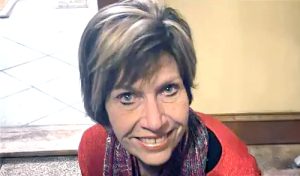In a world riven by tension, one skill stands above all others: the ability to resolve conflict. It is the paramount challenge of our time. I’ve seen first-hand its importance — in Congress as part of a legislative process that, at least at the time, was mostly focused on resolving differences, and as co-chair of […]
Get Instant Access to This Article
Become a Central New York Business Journal subscriber and get immediate access to all of our subscriber-only content and much more.
- Critical Central New York business news and analysis updated daily.
- Immediate access to all subscriber-only content on our website.
- Get a year's worth of the Print Edition of The Central New York Business Journal.
- Special Feature Publications such as the Book of Lists and Revitalize Greater Binghamton, Mohawk Valley, and Syracuse Magazines
[bypass-paywall-buynow-link link_text="Click here to purchase a paywall bypass link for this article"].
In a world riven by tension, one skill stands above all others: the ability to resolve conflict. It is the paramount challenge of our time.
I’ve seen first-hand its importance — in Congress as part of a legislative process that, at least at the time, was mostly focused on resolving differences, and as co-chair of two key national committees that were constituted along partisan lines, the 9/11 Commission and the Iraq Study Group. Here’s what I’ve learned.
First, to resolve conflict, you have to be committed to doing just that. When the 9/11 Commission met — at a time when many people just wanted to assign blame for the attacks on our country — we were often encouraged to take a confrontational approach by issuing hundreds of subpoenas that would force officials to testify and to turn over documents. We rejected that approach. There’s an old saying, “If you want to go fast, you go alone. If you want to go far, you go together.” That was our experience.
Another key to resolving conflict involves starting with facts. Focusing on them helps the various parties — which are sometimes very far apart ideologically — find some common ground and develop a relationship that permits them to go forward.
Building on that start, it’s crucial to develop collegiality. Because if you’re serious about resolving conflict, you’ll be spending a lot of time with the people you’re dealing with — so, good communication is crucial. This does not just involve talking. It means listening, asking questions, weighing arguments and options, and probing together whether disagreements can be resolved.
Compromise is a dirty word for many people, but it’s hard to resolve conflicts without it. Trying to understand other participants’ problems — and then trying to let everybody leave having gained something — can make the difference between success and failure.
Finally, it’s important to make sure to include all the parties to a conflict and to address all the core issues — and when in doubt it’s better to include than exclude. For a resolution to be sustainable, the key players must be brought into the process and the core issues considered.
All of this takes skill, patience, and understanding. And these attributes are not as common as they should be. But developing conflict-resolution skills is worth the effort. Because if you look around, the need for them does not appear to be going away.
 Lee Hamilton is a senior advisor for the Indiana University (IU) Center on Representative Government, distinguished scholar at the IU School of Global and International Studies, and professor of practice at the IU School of Public and Environmental Affairs. Hamilton, a Democrat, was a member of the U.S. House of Representatives for 34 years, representing a district in south central Indiana.
Lee Hamilton is a senior advisor for the Indiana University (IU) Center on Representative Government, distinguished scholar at the IU School of Global and International Studies, and professor of practice at the IU School of Public and Environmental Affairs. Hamilton, a Democrat, was a member of the U.S. House of Representatives for 34 years, representing a district in south central Indiana.



